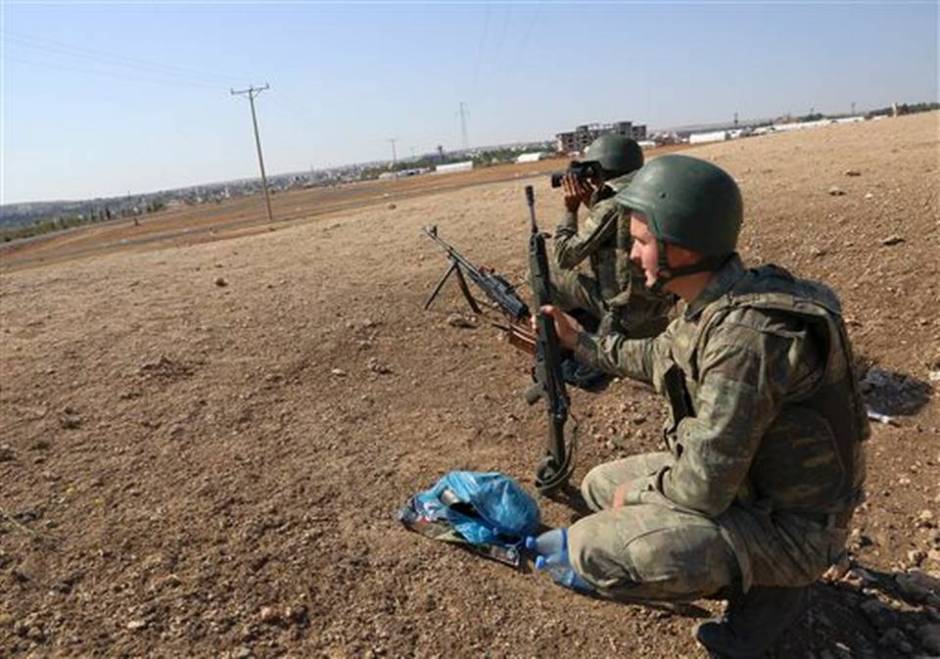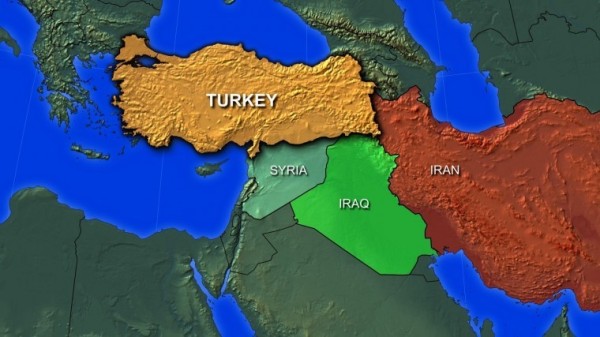In recent months, some media outlets have launched a smear campaign against Turkey by publishing and broadcasting news claiming that Turkey hosted and supported elements of Al Qaeda- linked terrorist groups in Syria. The slander went as far as accusing Turkey of training and allowing passage of those groups into Iraq and Syria through its territories.
Since the advances of Islamic State of Iraq and Al-Sham (ISIS) terrorists, both in Syria and Iraq last June, the rhetoric was modified but the target remained the same. This time, the same media outlets started to attack Turkey for its allegedly passive stance against ISIS in Ayn al-Arab (Kobani), one of the last strongholds of Kurds in Syria.
Let’s have a look at these accusations and decide if Turkey deserves them, or whether it is totally unfair to scapegoat a country facing the full impact of unfolding events right next door.
First things first.
Turkey’s border with Syria and Iraq is approximately 1,300 km. long. Maintaining full control of it is easier said than done. Reason dictates that it is almost impossible to fully control long borders, as the border between the U.S. and Mexico illustrates.
Turkey strictly maintains a no-entry-list of thousands of names compiled from information provided by source countries of individuals who strive to join extremists in Syria and Iraq. The number of individuals who were denied entry to Turkey due to the no-entry list surpassed 4,000 in 2013.
As soon as these individuals are located by Turkish security forces within the country, their detainment and deportation process begins. Approximately 1,000 foreigners were deported to their home countries before they were recruited by extremists. These measures were adopted by Turkey long before many source countries of foreign terrorist fighters began to provide us with intelligence and information on a regular basis.
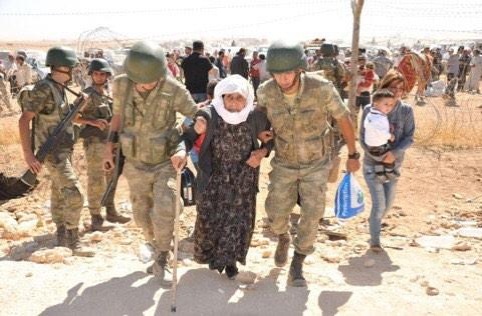
It is beyond imagination that Turkey, in a very short span of time, was able to accommodate a population of the size of Brampton, Ontario, in light of the threat posed by the Syrian regime and ISIS. As Canada might have done, Turkey opened its border with no hesitation and saved the lives of almost two million people.
But here is the dilemma: Either you keep the refugees away from the border and allow ISIS terrorists to start killing them before they even enter Turkey, or you allow them into Turkey and face the risks of infiltration.
For humanitarian reasons, Turkey chose the second option and extended a helping hand, with no ethnic or sectarian discrimination.
The fact that Turkey saved the lives of about 50,000 Armenians and Yazidis a couple of months ago is a case in point.
Opening our borders to the victims of the Syrian regime and saving their lives is not the end but just the beginning of Turkey’s humanitarian assistance.
The figures speak for themselves.
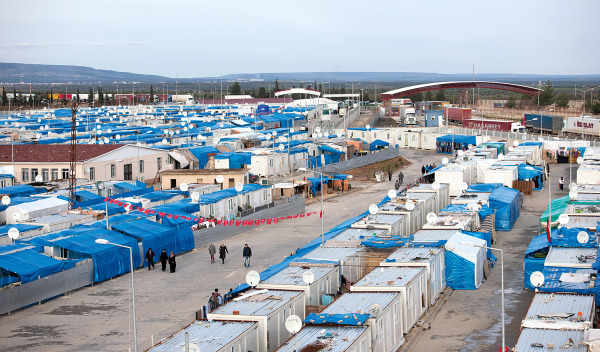
Twenty two camps have been established for Syrians in Turkey. Twenty seven thousand Syrian adults have so far completed technical vocational programs in Turkey, and over 28,000 Syrians have undergone medical operations in these camps. At present, 35,000 Syrian patients are under medical care at hospitals. In these camps, 45.000 students receive an education thanks to 2,000 teachers in 693 classrooms. Most remarkable of all, about 30,000 Syrian babies have been born in Turkey in the last three years.
To date, more than $4 billion (U.S.) has been spent for Syrian refugees on Turkish soil. When cross-border aid is taken into account, this figure rises to $4.5 billion. Sadly, contributions received so far from the international community have fallen far short, and Turkish taxpayers have had to shoulder the burden.
Turkey’s national security is much more affected by ISIS than that of countries that have mercilessly and unfairly blamed Turkey for inaction. The power vacuum in both Syria and Iraq has provided a suitable breeding ground for extremist groups. Since this extremism is not the cause but the result of years of misguided policies in both countries, this conflict cannot be understood just in terms of the rise of ISIS. A broader reading of the situation is required so as to find a lasting solution to the crisis.
In other words, the threat of extremism should be addressed through a comprehensive and integrated strategy. It’s not enough eliminate the mosquitoes. The swamp must be drained.
For decades, we have suffered extensively from the scourge of terrorism. Since the 1980’s, we have lost more than 40,000 citizens to the PKK, recognized by the U.S, Canada and Europe as a terrorist organization. Turkish diplomats around the world, including in Canada, were victims of Armenian terrorists for a period of two decades in 1970’s and 1980’s. We have been and are still are the target of Al Qaeda and other radical terrorist organizations. Just recently, Turkish diplomatic staff and their family members in Mosul were taken hostage by ISIS. They were released after nearly three months of captivity. In March 2014, three ISIS militants murdered three of our citizens in Turkey.
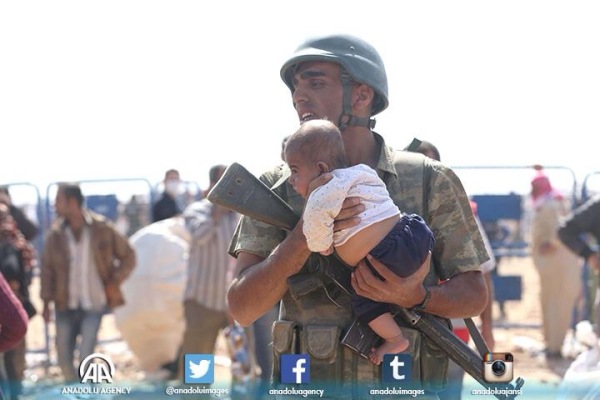
Those circles that have harshly criticized Turkey regarding developments in Kobani simply overlook the fact that Turkey has done more for the people of that city than any other country. As of last week, we have dispatched to the area more than 700 trucks filled with humanitarian assistance worth more than $10 million. In just a couple of days, we received 200,000 Syrian Kurds seeking refuge from ISIS threats.
Does this unprecedented humanitarian assistance mean nothing? Now, Turkey is being asked to do what no other country has been asked to do — send in ground troops to Kobani to fight ISIS.
Our answer is this: It’s a failure of logic to try to understand developments in Kobani while ignoring the deaths of 250,000 Syrians at the hands of the Syrian regime, which has killed its citizens by means of snipers, Scud missiles, barrel bombs and chemical weapons.
Here are a few legitimate questions that speak volumes: Should Turkey carry the burden alone? And should it be blamed of “failing” Kobani when, on perfectly legitimate grounds, it refuses to rush in?
Why didn’t anybody heed our call to help Turkmens in northern Syria while they were being massacred by ISIS terrorists? Why do we have to transfer weapons to PYD while they have not hesitated to collaborate with the Syrian regime in attacking the Syrian opposition?
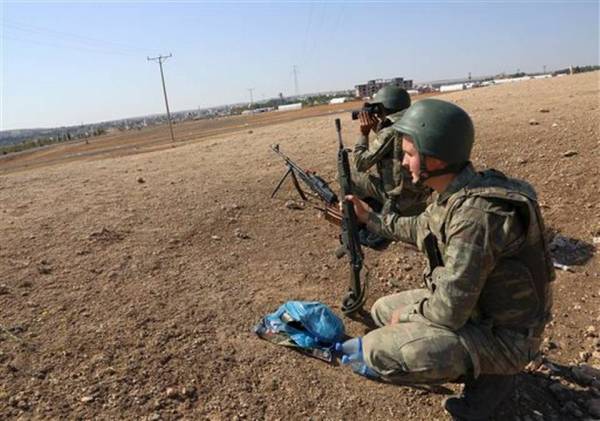
Turkey has the political and military will to cope with terrorism originating from Syria and Iraq. The recent motion adopted by the Turkish Grand National Assembly gave broad authority to the Turkish government to instruct the Turkish armed forces to take all necessary measures in the period ahead. It is a clear reflection of Turkey’s determination to tackle terrorism without reservation. A comprehensive strategy for both Syria and Iraq is required addressing political and humanitarian issues as well.
Hitting ISIS and going into Kobani without examining the root causes, including the culpability of the Assad regime, is a short sighted approach that will neither bring the end of ISIS nor eliminate other security threats.
It is the high time for a comprehensive strategy.
Ali Riza Guney is the consul general of Turkey in Toronto. He was previously the head of the Middle East department in Turkey’s ministry of foreign affairs. He has served in Turkey’s consulates in Karlsruhe and Jerusalem.

